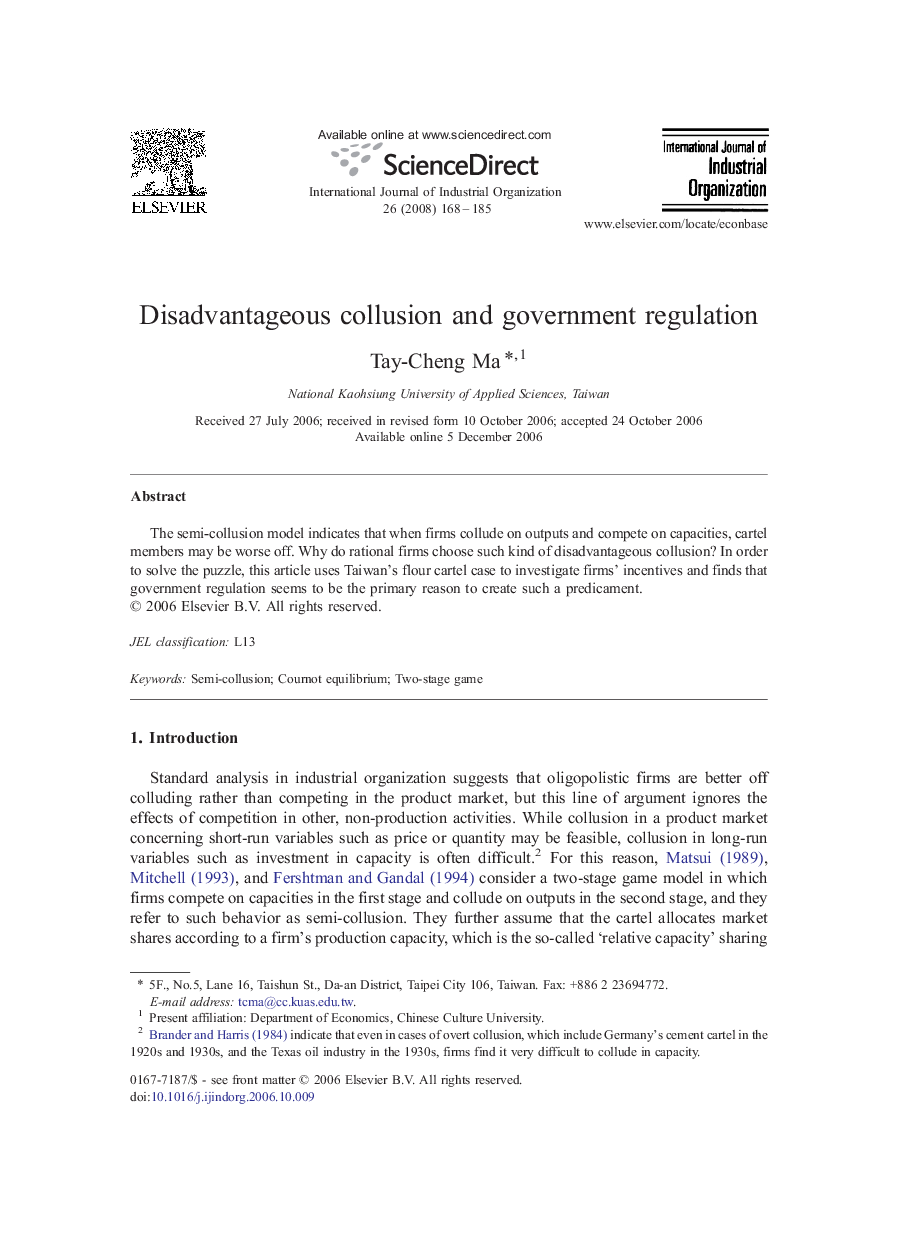| Article ID | Journal | Published Year | Pages | File Type |
|---|---|---|---|---|
| 5078554 | International Journal of Industrial Organization | 2008 | 18 Pages |
Abstract
The semi-collusion model indicates that when firms collude on outputs and compete on capacities, cartel members may be worse off. Why do rational firms choose such kind of disadvantageous collusion? In order to solve the puzzle, this article uses Taiwan's flour cartel case to investigate firms' incentives and finds that government regulation seems to be the primary reason to create such a predicament.
Keywords
Related Topics
Social Sciences and Humanities
Economics, Econometrics and Finance
Economics and Econometrics
Authors
Tay-Cheng Ma,
